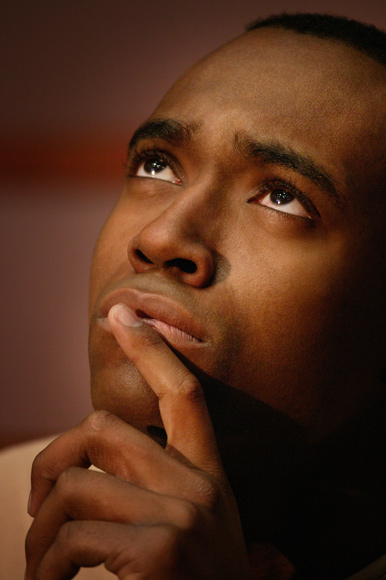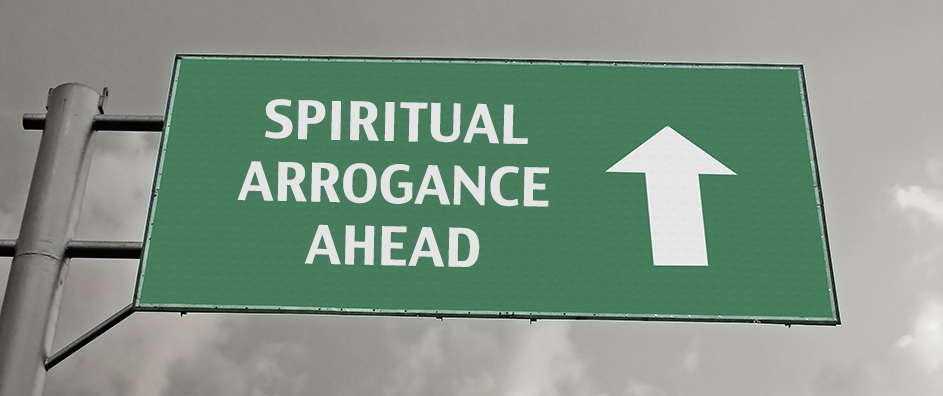The views expressed in our content reflect individual perspectives and do not represent the authoritative views of the Baha'i Faith.
When you search for truth, sometimes – Eureka! — you actually find some. But if you’re not careful, that can lead to the feeling that you know more than others. This is commonly known as arrogance.
You’ve heard the old joke: “I’d be perfect if I had a little humility.” Well, those who have acquired a measure of spiritual insight from their seeker’s quest sometimes have a particular vulnerability to a kind of triumphalistic arrogance, a feeling of superiority and a sense that they richly and uniquely deserve such rarified knowledge and perception. So that’s number four on the list of nine common mistakes spiritual seekers can make:
4. Arrogance.
Arrogance presents a real and present danger for spiritual seekers. Just by the very nature of spiritual search, we all tend to find some pretty satisfying and serious personal truth on our spiritual path – and if we’re not careful, it can make us a little smug. Or even worse, it can give us the false sense that we have knowledge and insight that somehow outranks or trumps other peoples’ knowledge and insight. Finding a personal path to inner peace and spiritual happiness can sometimes have an unfortunate side-effect: coming to believe that your personal path ought to be everyone’s path.
Maybe that’s why all Faiths teach us humility, the exact opposite of arrogance. And maybe that’s why the Baha’i writings warn us so repeatedly about the dangers of fanaticism and pride, two versions of the same kind of arrogance and superiority.
As a young man I had the dangerous combination of youth and early spiritual discovery, which, as I look back now, led to the development of some insufferable arrogance on my part. It’s pretty cringe-worthy when I think about it. I thought I had a whole universe of answers for the tough questions in life, but I lacked the empathy and the life experience and the wisdom that really makes those answers work.
Eventually I realized that mystical, inner exploration and discovery, when it truly results in the expansion of our minds and hearts, does not create arrogance – instead, it creates humility, and the ongoing realization that what we’ve learned represents just a tiny fraction of what remains to be learned.
 So how can we avoid arrogance, pride and feelings of superiority? We know it’s a danger to our inner life, a hindrance to further spiritual development and a potential character hazard for all of us. In the Baha’i writings, Abdu’l-Baha suggests an antidote for arrogance:
So how can we avoid arrogance, pride and feelings of superiority? We know it’s a danger to our inner life, a hindrance to further spiritual development and a potential character hazard for all of us. In the Baha’i writings, Abdu’l-Baha suggests an antidote for arrogance:
In accordance with the divine teachings in this glorious dispensation we should not belittle anyone and call him ignorant, saying: ’You know not, but I know’. Rather, we should look upon others with respect, and when attempting to explain and demonstrate, we should speak as if we are investigating the truth, saying: ’Here these things are before us. Let us investigate to determine where and in what form the truth can be found.’ The teacher should not consider himself as learned and others ignorant. Such a thought breedeth pride, and pride is not conducive to influence. The teacher should not see in himself any superiority; he should speak with the utmost kindliness, lowliness and humility, for such speech exerteth influence and educateth the souls. – Selections from the Writings of Abdu’l-Baha, p. 30.
Those who offer the Baha’i teachings to others have a particularly pronounced duty to develop humility. In fact, the Baha’i writings forbid Baha’is from proselytizing or attempting to forcibly convert others to their Faith. Baha’u’llah even relates this beautiful concept of spiritual humility to the Golden Rule:
If thine eyes be turned towards mercy, forsake the things that profit thee and cleave unto that which will profit mankind. And if thine eyes be turned towards justice, choose thou for thy neighbor that which thou choosest for thyself. Humility exalteth man to the heaven of glory and power, whilst pride abaseth him to the depths of wretchedness and degradation. – Tablets of Baha’u’llah, p. 64.
















Comments
Sign in or create an account
Continue with Googleor